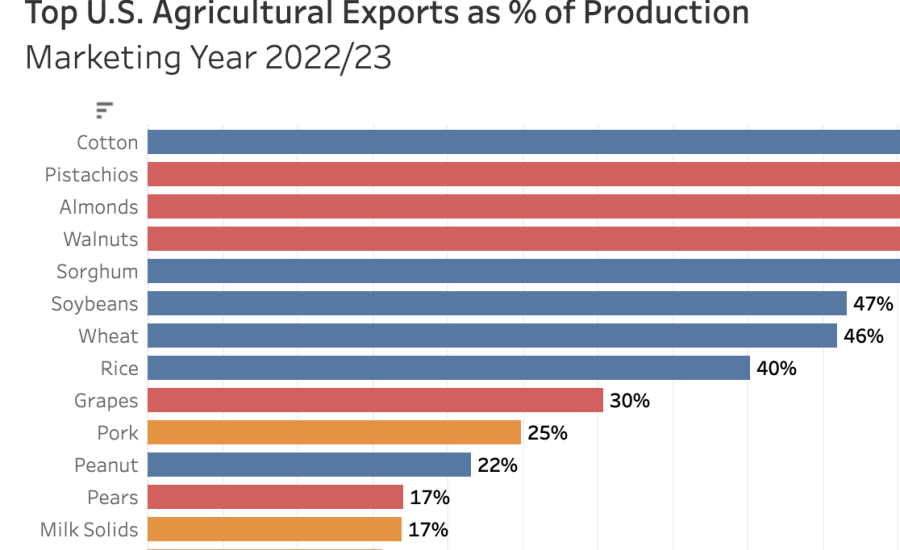Browse Data and Analysis
Filter
Search Data and Analysis
- 204 results found
- (-) Wheat
- (-) May 2024
- (-) 2016
- Clear all
U.S. agricultural exports are a critical source of farm income. The USDA Economic Research Service estimates that on average 23 percent of the output of nonmanufactured agricultural products were exported between 2013 and 2022.
On May 8, 2024, the Ministry of Agriculture and Rural Affairs (MARA) announced the issuance of new and renewed biosafety certificates for genetically engineered (GE) and gene-edited events.
The 2023 U.S. Agricultural Export Yearbook provides a statistical summary of U.S. agricultural commodity exports to the world during the 2023 calendar year.
Monthly report on crop acreage, yield and production in major countries worldwide. Sources include reporting from FAS’s worldwide offices, official statistics of foreign governments....
This monthly report includes data on U.S. and global trade, production, consumption and stocks, as well as analysis of developments affecting world trade in grains.
Exporters and importers continue to face much uncertainty due to the military regime’s foreign currency control policies and continuing conflict between the regime and ethnic armed forces. FAS Rangoon forecasts Burma’s MY 2024/25 rice exports to recover to 1.7 MMT amid high stocks and expected relaxation of export controls. MY 2024/25 corn exports and wheat imports will remain flat.
Wheat production is expected to recover this marketing year as higher soil moisture raises yield. West and North Kazakhstan were impacted by heavy flooding, with the areas of Atyrau, Kostanay, and Almola most negatively affected.
Negative public perceptions regarding biotechnology have influenced political will. The Mexican Supreme Court and the National Commission on Human Rights established that indigenous groups...
In fiscal year (FY) 2016 (October to September) total Colombian food and agricultural imports were valued at $5.5 billion.
A historic drought in Bolivia is causing water restrictions in households in the capital of La Paz and reducing grain and oilseed production output by 27 percent in 2016.
Opportunities exist for U.S. agricultural products especially bulk commodities. Algeria has implemented measures to support intensive production, particularly in cereals and dairy.
In February 2016, Korea revised the Food Sanitation Act, expanding mandatory biotech labeling to include all products with detectable biotech ingredients.

